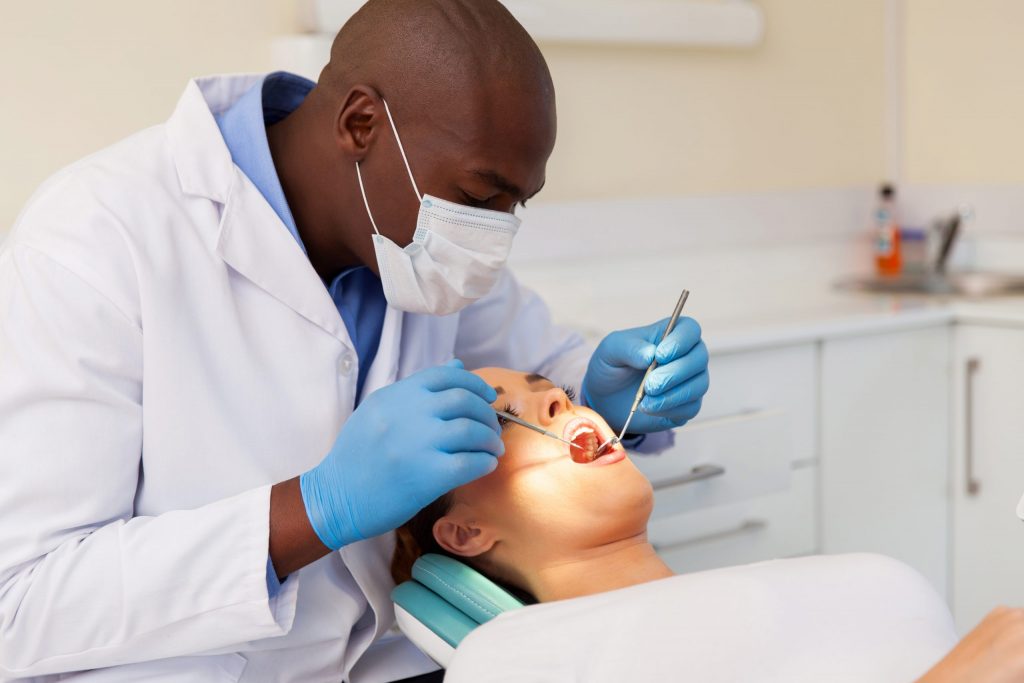Learn the Top Dentist Eugene Oregon Residents Count On for Exceptional Care
A Guide to Typical Oral Problems That Call for a Dentist's Treatment
Comprehending the variety of dental conditions that demand professional treatment is extremely important for keeping optimal oral health. Toothaches, for instance, can be symptomatic of serious issues such as dental caries, split teeth, or abscesses, each requiring specific interventions like dental fillings or origin canals. Gum illness, from the onset of gingivitis to much more serious periodontitis, underscores the significance of routine dental check-ups and cleansings. Affected knowledge teeth and jaw disorders can present considerable discomfort and problems. Guaranteeing timely brows through to the dental professional can minimize these issues properly, yet exactly what are the indicators and treatments involved?
Toothaches
Toothaches are a common dental problem that can range from moderate pain to extreme pain, often suggesting an underlying issue that requires expert interest. This pain can stem from a range of resources, consisting of dental cavities, fractured or fractured teeth, and dental abscesses. Each of these conditions positions substantial threats if left untreated, potentially causing a lot more severe complications.
Dental tooth cavities, also recognized as cavities, are created by the buildup of plaque that deteriorates tooth enamel, leading to openings or pits in the impacted teeth. Abscesses are uncomfortable infections at the origin of a tooth or between the gum tissue and a tooth, commonly resulting from extreme decay or untreated dental caries.
Reliable treatment of toothaches entails dealing with the root reason. This might consist of fillings for cavities, crowns for broken teeth, or root canals and anti-biotics for abscesses. Early treatment by a dental professional can avoid additional degeneration and minimize discomfort, ensuring optimum oral wellness.
Periodontal Illness

The primary source of gum tissue illness is microbial plaque, a sticky, anemic movie that constantly creates on teeth. Poor oral health, cigarette smoking, genetic proneness, and certain clinical conditions, such as diabetes, can exacerbate the danger of establishing gum tissue disease. Normal dental examinations are crucial for very early detection and administration of this problem.
Treatment for periodontal condition ranges from expert oral cleansing and scaling to more sophisticated treatments like root planing and periodontal surgical treatment, relying on the severity. Keeping good dental health techniques, including cleaning twice daily, flossing, and utilizing an antiseptic mouth wash, can considerably lower the risk of periodontal illness and promote healthier gum tissues.
Dental Caries
Dental caries, also referred to as cavities, are a common dental condition defined by the damage of tooth enamel as a result of acid-producing bacteria in the mouth. These germs thrive on sugars and starches from food and beverages, creating acids that gradually wear down the enamel, leading to tooth cavity formation.
Early-stage cavities might not reveal signs and symptoms, yet as they proceed, they can trigger toothache, level of sensitivity to cold or warm, visible holes or pits in the teeth, and staining. If left untreated, tooth cavities can permeate much deeper layers of the tooth, potentially resulting in severe discomfort, infection, and also missing teeth.
Protecting against dental caries entails a combination of excellent dental health practices and dietary practices. Normal brushing with fluoride toothpaste, flossing, and routine dental examinations are vital. Dental practitioners may additionally advise additional safety nets, such as fluoride therapies and oral sealers, to shield teeth from degeneration.
Therapy for cavities depends on their severity. Small dental caries can be attended to with oral fillings, which recover the tooth's framework. More sophisticated instances might require crowns or also root canal treatment if the degeneration has gotten to the tooth's pulp. Timely treatment by a dental practitioner is necessary to protect against difficulties and preserve overall dental health.
Impacted Knowledge Teeth
Impacted wisdom teeth are a common dental problem that occurs when the third molars, commonly described as wisdom teeth, fall short to fully arise or align effectively within the mouth. This condition often results from not enough room in the jaw or an unusual growth angle of the teeth. Affected knowledge teeth can lead to a range of problems, consisting of infection, pain, and damages to nearby teeth.
When knowledge teeth become influenced, they are often partially emerged or continue to be entirely beneath the gum tissue line. This partial eruption can create a pathway for bacteria to go into the gum tissues, leading to infections that manifest as swelling, pain, and also fever (dentist in eugene oregon). Furthermore, impacted knowledge teeth can apply stress on neighboring teeth, potentially triggering crowding or moving
A comprehensive dental examination, typically entailing X-rays, is vital for identifying affected useful site wisdom teeth. Therapy often entails medical removal, done by an oral surgeon. The procedure intends to ease pain and avoid further problems, such as cysts or damages to surrounding bone structures. Post-operative care is essential to guarantee proper healing and decrease the threat of infection. Normal oral exams are recommended to keep track of the problem and keep oral health.
Jaw Conditions
Conclusion

Oral dental caries, also recognized as decays, are caused by the accumulation of plaque that wears down tooth enamel, leading to holes or pits in the affected teeth. Abscesses are agonizing infections at the origin of a tooth or between the gum tissue and a tooth, usually have a peek at this website resulting from extreme decay or without treatment cavities.
Affected knowledge teeth are a widespread oral problem that takes her response place when the 3rd molars, typically referred to as wisdom teeth, fall short to fully emerge or align correctly within the mouth. Impacted knowledge teeth can lead to a selection of difficulties, including infection, discomfort, and damage to surrounding teeth.
Additionally, impacted wisdom teeth can exert pressure on bordering teeth, possibly triggering crowding or moving.